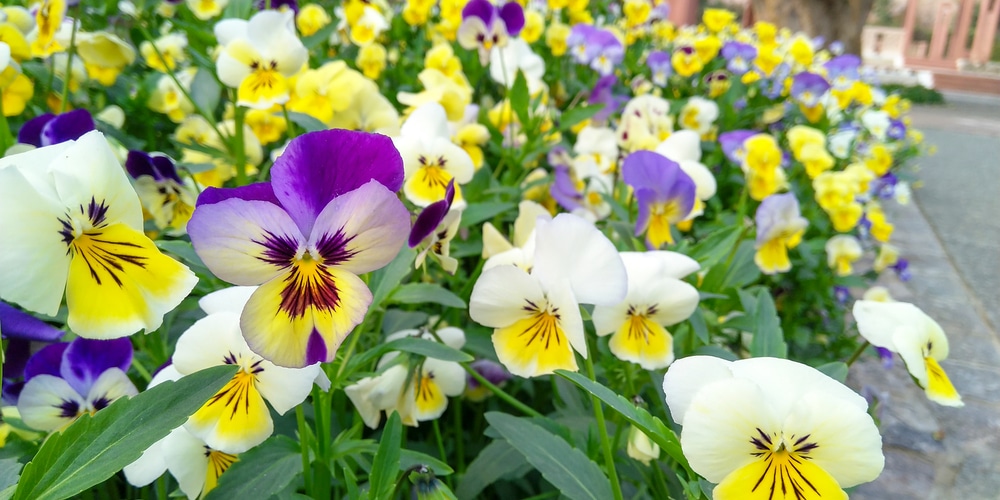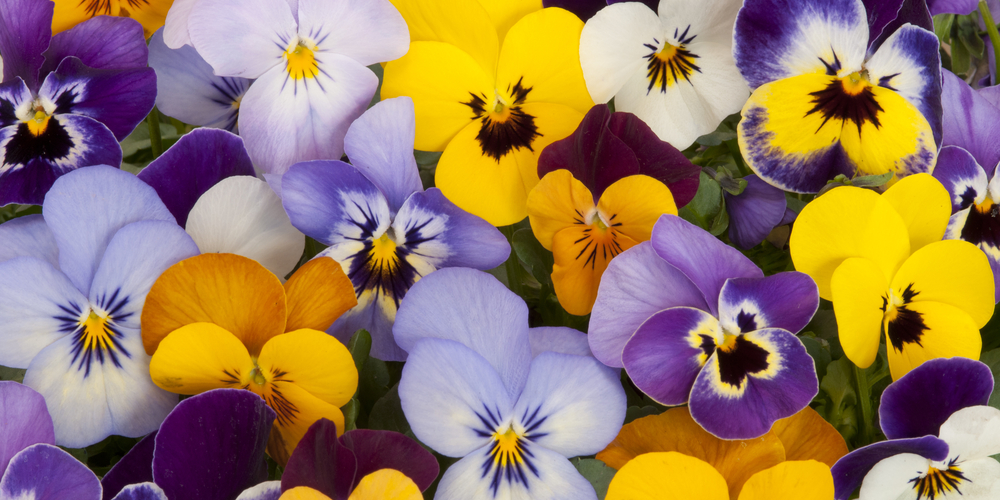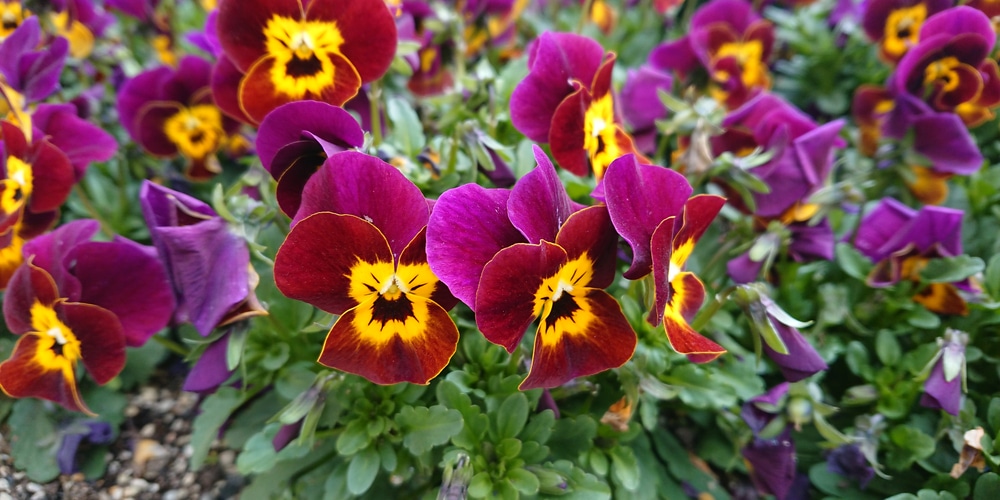You might know pansies for being cool-loving plants. These colorful plants can make your garden lively: besides their vivid blooms, they will also attract plenty of beneficial pollinators. But can pansies survive frost?
If you like having a healthy garden, you’ll benefit from the frequent visits from bees and butterflies. And while pansies are not particularly challenging to grow, they might suffer under non-ideal weather conditions. For instance, if you live in a hot region, you may have seen them becoming sad and droopy as the temperatures rise.
And there are reasons for that: these plants tend not to do too well above 70°F. But does that make pansies winter plants? Does it mean you can extend the flowering season of these plants in your garden? In essence, can pansies survive frost? Keep reading to explore answers to such questions and feed your curiosity.
Will Pansies Die When Frost Arrives?
Pansies are winter flowers that have a high tolerance to low temperatures. So, to give you straight answers to the question: yes, pansies will survive frost. Of course, they might have problems withstanding long periods at low temperatures.
But the truth is that, with proper care, you might even be able to enjoy their blooms during the winter. If that sounds like something you would like, here are our tips to help your pansies survive through the winter.
Don’t forget that your success at growing pansies in the winter depends on your local climate conditions. Overall, these flowering plants are tolerant to winters above USDA hardiness zone 4.
Below that, you might have to take further measures to protect them. Additionally, keep in mind that other factors may play a role in determining whether your pansies will die or survive in the winter.
For instance, soil temperature plays a crucial factor in pansies’ death. Jump to the following sections to learn all you need to know about improving your garden conditions to make your pansies healthier and hardier.
How to Prepare Your Pansies for the Winter
You can grow pansies as annuals or perennials. Of course, you’ll have to adjust your efforts depending on where you live. However as the temperature falls below 25°F, your plants will get into defense mode.
That might result in the green foliage turning grey and wilting. But don’t worry: that doesn’t mean your pansies are dying. Such a reaction is nothing more than the natural response to freezing temperatures.
To protect your plants from low soil temperatures, consider adding a thick layer of mulch around them. Doing so will prevent thermal shock and prevent the soil from getting too cold.
Indeed, when the ground freezes, your pansies won’t be able to absorb water and nutrients, which will result in dehydration and, ultimately, death. A 2 to 4 inches thick layer of mulch will contribute to trapping heat in the soil and keep your plants safe.
Consider using pine straw: its fine texture allows water to filter better than other (more compact) types of mulch.
If winters get so cold where you live that the soil remains frozen for long periods, you’ll get much better results applying a solid cover to your ground over the winter.
Finally, if you are growing pansies in a container, you should think about moving them to the ground over the winter. Despite sounding counterintuitive, the truth is that winter damage will be much harsher in pots.
Don’t forget to make sure you select a location that receives plenty of sunlight during the fall and the spring to minimize damage. Jump to the following sections to learn more about limiting damage over the winter!
Minimizing Winter Damage
Fertilizing your pansies at the right time of the year can be beneficial. Adding extra nutrients to the ground will boost blooming and strengthen your plants. However, late fertilization is of the most frequent mistakes gardeners make with pansies. And while it might not sound too bad, it may result in severe winter damage.
We recommend you apply a balanced, water-soluble fertilizer n the fall to help your plants get through the winter better. Avoid products high in nitrogen, which will often make your plants leafier at the expense of flowers. Don’t forget that low temperatures will kill new growth.
You don’t want to apply fertilizer in the fall to boost growth. Instead, your should improve the soil conditions to make your plants less prone to winter damage. And a single application of a liquid product will achieve such a goal.
Related Article: How Often Should I Water Pansies?


